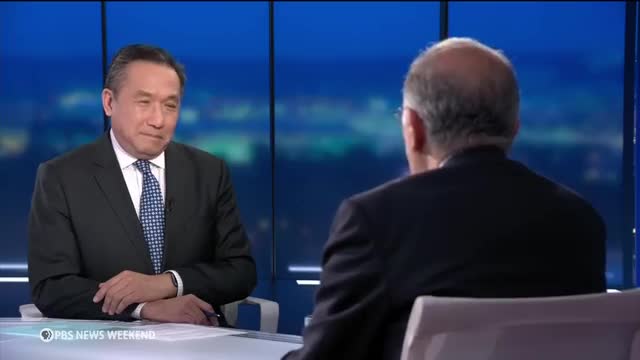Trump's Outreach to Arab Americans Sparks Political Reckoning
This article was created by AI summarizing key points discussed. AI makes mistakes, so for full details and context, please refer to the video of the full meeting. Please report any errors so we can fix them. Report an error »

In a recent government meeting, discussions highlighted the shifting political dynamics among Arab American voters, particularly in light of Donald Trump's outreach efforts during the campaign. Analysts noted that Trump's direct engagement, including a visit to a halal cafe in Dearborn, resonated with voters who felt neglected by the Democratic Party. Many Arab Americans, traditionally aligned with Democrats, expressed their frustration through a notable increase in support for Trump, driven by a desire to send a message to the Democrats.
Key factors influencing this shift included Trump's stance on Israel and his perceived commitment to peace, despite concerns that his approach may not align with the aspirations for justice and recognition of Palestinian rights. The meeting underscored the complexities of voter sentiment, with many expressing a mix of hope and skepticism about the future under Trump's leadership.
Participants emphasized the need for the Democratic Party to reassess its outreach strategies, particularly towards immigrant and ethnic communities that feel abandoned. The discussion pointed to a broader trend of disillusionment among voters who believe their concerns are not being adequately addressed. As the political landscape evolves, the Democratic Party faces a critical challenge in reconnecting with these communities to regain their support.
Key factors influencing this shift included Trump's stance on Israel and his perceived commitment to peace, despite concerns that his approach may not align with the aspirations for justice and recognition of Palestinian rights. The meeting underscored the complexities of voter sentiment, with many expressing a mix of hope and skepticism about the future under Trump's leadership.
Participants emphasized the need for the Democratic Party to reassess its outreach strategies, particularly towards immigrant and ethnic communities that feel abandoned. The discussion pointed to a broader trend of disillusionment among voters who believe their concerns are not being adequately addressed. As the political landscape evolves, the Democratic Party faces a critical challenge in reconnecting with these communities to regain their support.
View the Full Meeting & All Its Details
This article offers just a summary. Unlock complete video, transcripts, and insights as a Founder Member.
✓
Watch full, unedited meeting videos
✓
Search every word spoken in unlimited transcripts
✓
AI summaries & real-time alerts (all government levels)
✓
Permanent access to expanding government content
30-day money-back guarantee
